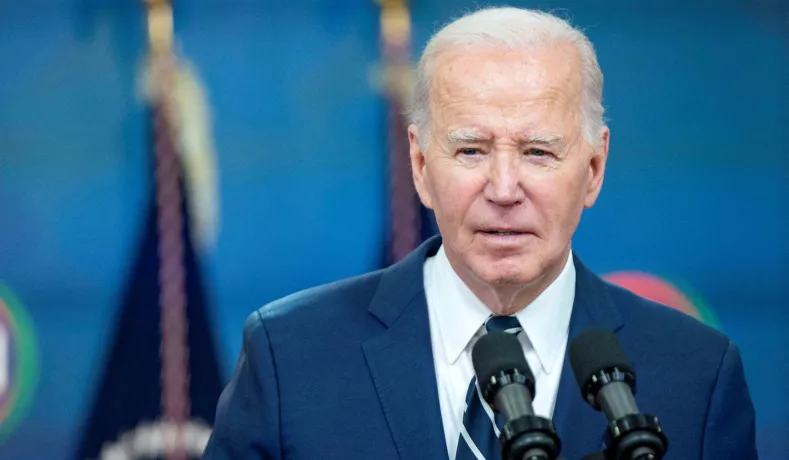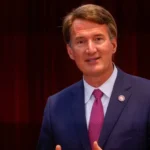
Published April 15, 2024
Last week, I said the president’s rebooting of Obama’s controversial Affirmatively Furthering Fair Housing (AFFH) regulation is the unspoken key to Biden’s second-term housing plan. I added that Biden’s decision to wait until after his reelection to fully revive AFFH is politically motivated. AFFH inserts the feds into heretofore local decision-making on zoning, transportation, parks, school-district boundaries, and plenty more. This overweening bureaucratic regulation is going to stir up mighty resistance from Democrats and Republicans alike, especially in the suburbs. Biden is trying to disguise his plans so as not to alienate suburban voters.
Coincidentally or not, two days after my piece appeared, HuffPost effectively confirmed my point. In an article titled “White House Hesitates To Bring Back Fair Housing Rule,” Arthur Delaney consults several Democratic insiders on the status of AFFH. According to a “senior official,” the White House is “hesitating to finalize” AFFH “out of fear it would cause a conservative backlash.” A “senior HUD official with knowledge of the process” told HuffPost that AFFH hasn’t yet been finalized “because the White House is being ‘chickensh**’” (no expurgation in the original).
Despite an official White House spokesman’s denial that AFFH was being held up for political reasons, Sara Pratt, who worked on the original rule as Obama’s deputy assistant secretary for fair housing, doesn’t buy it. Although Pratt has no inside information, she told Delaney that she doesn’t think the rule needs further work. According to Pratt, “the amount of time that has passed that allows all the internal consideration, thoughtfulness about the comments and so forth, has happened undoubtedly, and the rule should be ready to publish.”
It’s been nearly four years since President Donald Trump revoked the original rule. It doesn’t take that long to restore a regulation, even with some tweaks. Clearly, AFFH is being held back for political reasons. Biden has a housing plan, all right, he just doesn’t want voters to know what it is.
Biden’s need to keep his planned revival of AFFH out of the public eye may explain his failure to nominate a replacement for recently retired secretary of Housing and Urban Development Marcia Fudge. (Fudge’s last day on the job was March 22.) The opportunity to select a new HUD secretary would perfectly highlight housing as the president’s new campaign theme. Yet Biden has named Adrianne Todman, Fudge’s second in command, as acting secretary and has otherwise gone silent on the vacancy. Politico says Fudge’s stepping down puts Biden “in a difficult position.” But why?
According to Politico, Biden is worried about marshaling the votes to confirm a new HUD secretary. But why not hold hearings, present voters with your supposedly popular housing plans, and dare Republicans to reject the nominee? Biden’s refusal to name a replacement for Fudge suggests that the president wants to stop Republicans from hammering AFFH at confirmation hearings.
Secretary Fudge’s retirement at so awkward a moment — with only eleven days’ notice — may even have been motivated by Biden’s plans to delay the finalization of AFFH. Fudge told USA Today that her resignation was “mostly” personal. She wants to spend more time with her family. What about the part that isn’t personal? We get hints when Fudge says she knows that, on housing, “not much is going to be done through this election cycle” and that nothing will happen “as we go into this crazy, silly season of an election.” It’s mere speculation on my part, but it does sound as though Fudge might have abruptly resigned after learning that the White House wouldn’t finalize AFFH until after the election.
Speculation aside, the HuffPost piece clearly indicates that Biden is delaying the finalization of his hyper-controversial regulation until after the election. As I argued last week, however, that means Biden is prioritizing housing as a campaign issue while omitting to mention that AFFH is the only conceivable key to his plan. Biden, in short, is afraid to tout his own housing policy. How do you campaign on housing without mentioning the keystone of your plan? I guess we’re about to find out.
Stanley Kurtz is a Senior Fellow at the Ethics and Public Policy Center. Beyond his work with Education and American Ideals, Mr. Kurtz is a key contributor to American public debates on a wide range of issues from K–12 and higher education reform, to the challenges of democratization abroad, to urban-suburban policies, to the shaping of the American left’s agenda. Mr. Kurtz has written on these and other issues for various journals, particularly National Review Online (where he is a contributing editor).












